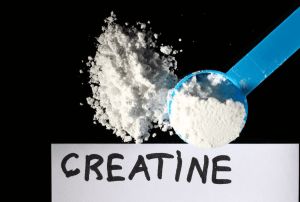As a fitness enthusiast and regular gym-goer you probably don’t risk acquiring type 2 diabetes. Keep in mind, however, that, as we have previously written: You cannot outrun a bad diet.
Type 2 diabetes is a disease on the rise and is characterized by high blood glucose (sugar) levels, low insulin sensitivity and dysfunctional insulin release. Glucose is not able to enter the cells and instead wreaks havoc within your arteries and peripheral nervous system, driving cardiovascular disease and nerve system dysfunctions.
Our Primary Fuel
Glucose is, as you might know, the primary fuel for the cells during high intensity workouts. It can be transported in to the cell with or without the help of insulin. The capacity of the pathway without insulin is not sufficient to meet the body´s demands and we therefore rely heavily on the insulin dependent pathway. Your skeletal muscles stand for 80% of your body’s insulin dependent glucose uptake. The rest is primarily by fat cells.
Insulin Secretion
After a meal, beta cells in the pancreas will release insulin to the blood stream, insulin will then act on muscle and fat cells and make them express GLUT 4 transporters on their outer membrane, thus enabling them to access blood glucose.
An alternative pathway of getting glucose in to muscle cells is by exercising, muscle contractions will, in an insulin independent fashion, increase the GLUT4 transporters on the outer membranes of muscle cells.
Summary
Regular exercise will increase the efficiency of the insulin independent pathway and also increase insulin sensitivity. Your muscles will thus have more efficient access to glucose, allowing you to exercise longer and harder. There is strong evidence indicating that there is a dose–response relationship between increases in exercise capacity and lowering of cardiovascular risk factors, associated with type 2 diabetes.
Article by Jonas Liefke. 4th year Medical Student, B.Sc. Physiotherapy.
Sources:
1. R Zierat. Resistens mot insulin i skelettmuskel på molekylär nivå. Läkartidningen nr 45 2010 volym 107.
2. J Jendle. Fysisk aktivitet vid diabetes mellitus typ 2. FYSS-kapitel Typ 2-DIABETES








